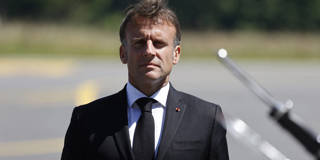OnPoint Subscriber Exclusive
Longer Reads provide in-depth analysis of the ideas and forces shaping politics, economics, international affairs, and more.

Macron’s Trial by Fire
Even if Emmanuel Macron can restore stability to France by working closely with Prime Minister Michel Barnier, the bigger question is what will become of Macronism, his famous strategy of bringing together ideas from the left and the right. Whether Jupiter will achieve political immortality very much remains to be seen.
PARIS – French President Emmanuel Macron had a great Olympics, and now he has reasserted control with the appointment of Michel Barnier, the European Union’s former lead Brexit negotiator and a foreign minister under Jacques Chirac, as prime minister. But like Macron’s second presidential term more broadly, this summer was touch-and-go for a while.